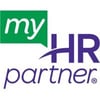Whether it’s hurricanes along the shore, blizzards in the north or wildfires in the west, Mother Nature can do a number on work schedules. Employers have specific concerns for the safety of their employees during severe weather.
The unfortunate reality is that before, during and after natural disasters, wage and hour laws still prevail. We would like to share a few inclement weather policy tips for businesses and employers that any workforce may face in any part of the country at any time of year.
What OSHA and NLRA have to say about driving to work in severe weather conditions
According to a great article we read on the blog Chron, the situation is more complicated than you might think. For one thing, there are major compliance issues associated with Occupational Safety and Health Administration (OSHA) and National Labor Relations Act (NLRA) regulations. OSHA regulations say that if a motor carrier is afraid of serious injury based upon conditions that he or she considers to be hazardous, that employee cannot be fired, disciplined or discriminated against for refusing to drive. Every state has its own definition of what it considers to be a motor carrier, so be sure to check yours. (Of course, if you’re one of our clients we’ll do the work for you!)
What about others? The NLRB says employers cannot retaliate against workers who refuse to work due to unsafe work conditions, provided three criteria are met. The Chron article points out that workers must:
- Act in good faith, honestly believing that it would be dangerous to drive under current conditions
- Base the refusal on a situation that must involve more than one worker
- Show that the refusal to drive cannot be part of a work stoppage designed to get around a “no strike” clause in a union contract
The Department of Labor seems less clear on this. Also, according to the Chron post, the U.S. Department of Labor (DOL) has ruled in the past in ways that favor both sides of the issue. The DOL has agreed with an employer’s right to fire an employee for refusing to drive in some cases but also has said that drivers who legitimately had weather-related safety concerns have a right to refuse. When the DOL decision favors the employee, mind you, he or she is entitled to his or her job back, legal fees and back pay.
What can employers do?
There are steps you can take to reduce the risks during inclement weather. For starters, you need a clear, established policy concerning weather-related driving concerns in your employee handbook. Let your team know what your expectations are during inclement weather if their job includes being on the road, including what types of driving-related tasks can be postponed to another, safer time.
You can do things such as make sure their company-owned vehicles are given regular safety checks and provide employees on the road with access to a reliable roadside assistance service. Putting emergency supplies in all your company vehicles says a lot about how seriously you take your employees’ safety. First aid kits, flares, flashlights, scrapers, shovels — these are all things your employees will appreciate you giving them, even if they never need to use them.
When it comes to employees commuting to work, you may want to consider how your attitude and policies for inclement weather impact your employee relations, too. When you need them to work, requiring that employees drive in conditions that they feel are unsafe can contribute to poor morale. Your employees’ well-being should clearly be a concern.
Alternatives to consider include:
- Working from home
- Working adjusted hours for the week
- Using PTO time to stay home for an event like a snowstorm where kids can enjoy winter activities while schools are closed
Here are some compliance issues to remember if you do have employees working from home.
Monster snowstorms or hurricane floods may make working from home the best option for some organizations. While this can be a great solution for many employees and employers alike, certain compliance issues with the Fair Labor Standards Act (FLSA) should be kept in mind.
If you close and do not allow employees to work, exempt employees that were otherwise willing to work must be compensated for the day. Hourly employees, on the other hand, do not need to be compensated by law. Consider the impact on the exempt vs. non-exempt balance of your team in making decisions.
You are required by law to pay employees if they work from home during inclement weather. This includes non-exempt employees, who must record their time in accordance with an established system, so they are properly paid.
Your state may impose additional requirements or restrictions. Don’t forget any payment obligations you have under collective bargaining agreements and/or your own company policies, either.
Finally, please stay safe! Your and your employees’ health and safety are the most important thing.



